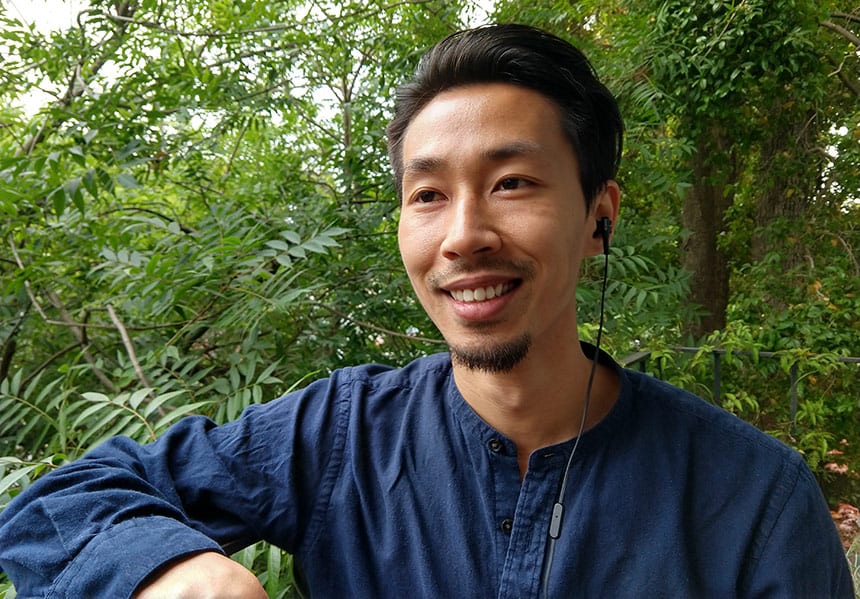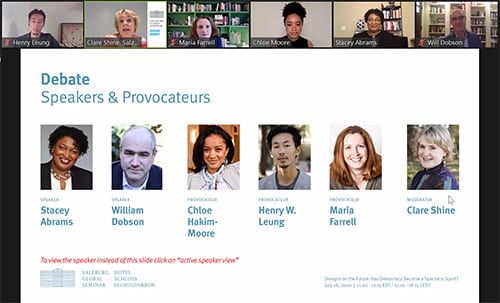
Even as COVID-19 continues to alter the legal landscape, Berkeley Law students are engaged in compelling summer work encompassing a huge range of practice areas. Throughout the summer, we will periodically present first-person accounts from students who are doing intriguing work.
Henry W. Leung ’21 was born in China and came to the United States with his family when he was 1. A Stanford University graduate, he earned a master’s degree in fine arts at the University of Michigan and went to Hong Kong as a Fulbright Fellow in 2014. He planned to spend most of his year there in libraries, but says “I found my library on the street instead.” Leung is a multiple prize-winning writer who has had two poetry books published, including his latest work Goddess of Democracy, inspired by the Hong Kong protests.
Below, Leung describes his summer work experience as a Salzburg Cutler Fellow in International Law, and as a summer associate at Crowell & Moring:
In late February, after a series of four delayed flights and another night in a hotel, I texted home with a flippant joke about exposure to COVID-19. I was returning from a program in D.C., including a day at the august U.S. Institute of Peace, as part of Berkeley Law’s inaugural cohort of Salzburg Cutler Fellows in International Law.
I couldn’t have guessed that hardly two weeks later, the San Francisco courthouse where I’d been externing would send us all home to “shelter in place,” an alarm I could only associate with the release of chemical weapons. I couldn’t have guessed that my flight home would be the last one I would take for a very, very long time.

Nor could I have guessed that, because indefinitely sheltering in place has shifted paradigms in our social and professional habits, I would be invited to join a webinar in July with the likes of Stacey Abrams and Will Dobson. Titled “Has Democracy Become a Spectator Sport?”, the webinar was the first in a series hosted by Salzburg Global as an intervention in our many democratic crises.
I spoke as one of three “provocateurs” including Maria Farrell and Chloe Moore. Across a span of at least three continents, we discussed voter suppression, protest, big tech, climate, and the pandemic. The webinar began in the early evening in Austria where the virtual room was hosted — but it was early morning where I joined in Berkeley, well before the start of my workday at Crowell & Moring.
My summer at Crowell, which ended July 31, was entirely virtual. The program was absent of hallway greetings, small talk between presentations, and the social ease that comes with being in a room where everyone’s face is equally greasy from a long day of working in the office. I don’t believe I saw a single cup of coffee during my many virtual coffee chats. At least one virtual happy hour was cancelled when a storm in another state knocked out the host’s power.
Yet the summer has been full of warmth and connection. I’ve met with attorneys across the East and West Coasts, some of whom are sheltering further afield. I’ve seen partners in the home setting of their kitchens and children’s rooms, which has required us to face one another as un-costumed persons.
I’ve worked with the D.C. office on matters concerning the Foreign Sovereign Immunities Act and the San Francisco office on domestic disputes with our own sovereign; I’ve analyzed proposed legislation that I was already following in the news; and I’ve tread along the fraught terrain of asylum work.
I came to law school from a prior career in literature so that I could reach a deeper understanding of language, human relationships, and architectures of power. I came to plumb my own sense of the international: not a romantic expansion from local to global, but rather the diasporic sense that these days we all seem to come from nowhere in particular.
COVID-19 has already laid bare some of this. It has put many face-to-face with precarity for the first time, and many more not for the first time. It has narrowed us physically for school and work, caging us in a giant world of tiny computer screens.
I pause at the end of this summer to note that I have been privileged to work, and privileged to observe the human connections that weave across it. In my hunger to reach through the screen and make the solitude of a legal workday more than just the processing of information, I have been reminded of an insight from Walter Benjamin’s writings: that in the stories we shape and tell one another, what we seek is neither knowledge nor experience, but counsel.